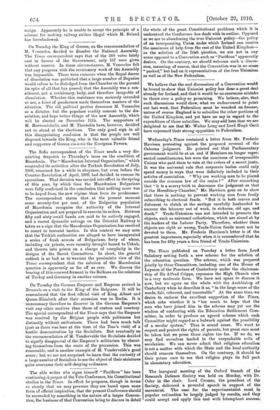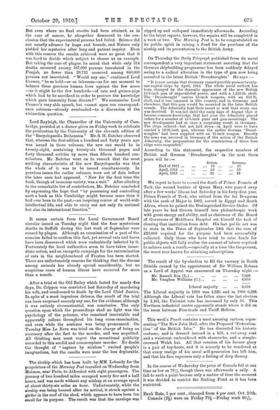The inaugural meeting of the Oxford branch of the Research
Defence Society was held on Monday, with Dr. Osier in the chair. Lord Cromer, the president of the Society, delivered a powerful speech in support of the movement. The ease for the experimentalist must in popular estimation be largely judged by results, and they could accept and apply this teat with triumphant success.
But even where no final results' had been attained, as in the case of cancer, he altogether demurred to the con- clusion that the experimental process had failed. Science did not usually advance by leaps and bounds, and Nature only yielded her mysteries after long and patient inquiry. Even with this reserve the results achieved were so great that it was hard to decide which subject to choose as an example. But taking the case of plague, he noted that while only 314 deaths occurred among 187,000 persons inoculated in the Punjab, no fewer than 29,723 occurred among 640,000 persons not inoculated. "Would any one," continued Lord Cromer, "be so bold—or so inhuman—as for one moment to balance these precious human lives against the few score —or it might be the few hundreds—of rats 'and guinea-pigs which had to be sacrificed in order to procure the knowledge which gave immunity from disease ?" We summarise Lord Crouner's very able speech, but cannot open our correspond- ence columns—already overloaded—to a discussion of the vivisection question.















































 Previous page
Previous page